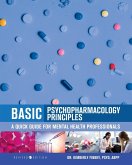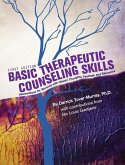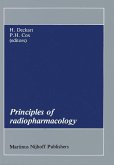Basic Psychopharmacology Principles: A Quick Guide for Mental Health Professionals introduces students to basic concepts of psychopharmacology to help them develop a broad understanding of drugs and how they work in the body. Part I familiarizes students with basic principles of pharmacology including drug types, the structure and function of the central nervous system, fundamental pharmacological concepts, and an overview of adrenergic and cholinergic neuronal systems. Part II discusses patient diagnosis and treatment, as well as biological markers and diagnostic testing. Part III dives deeper into clinical psychopharmacology, addressing how psychotropic medications interact with depression, psychosis, anxiety, trauma, pregnancy, and more. The guide concludes with a section on clinical considerations in which students are encouraged to apply biopsychosocial assessments and analyze clinical cases using the biopsychopharmacological model. In the revised first edition, drug chart appendices have been updated to include psychotropics used for treating mood disorders, psychosis, and insomnia. This edition also introduces discussion on perinatal depression. Written for both non-prescribers and clinicians interested in prescribing medication to clients, Basic Psychopharmacology Principles is ideal for courses in social work, psychology, counseling, and marriage and family therapy.
Hinweis: Dieser Artikel kann nur an eine deutsche Lieferadresse ausgeliefert werden.
Hinweis: Dieser Artikel kann nur an eine deutsche Lieferadresse ausgeliefert werden.








